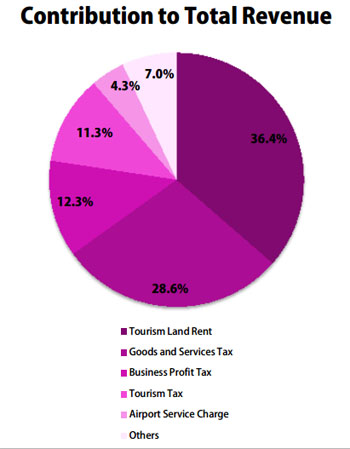The Rainbow Warrior – flagship of environmental NGO Greenpeace – is visiting the Maldives as part of a two-month tour of the Indian Ocean.
“Greenpeace has come to the Indian Ocean in order to learn about fishing activities in the region, and to talk to communities, governments, officials and the tuna fishing industry, with the intention of working together to combat overfishing and to stop destructive and illegal fishing,” the international organisation stated.
During the vessel’s visit to the Maldives, the crew will document the pole and line fishery in the southern atoll, hold a one-day conference on sustainable tuna, involving political, fishing and commercial sectors joint monitoring and surveillance with the Maldivian coast guard in Maldivian waters. The vessel will be opened to school children in Laamu Gan.
Executive Secretary of the International Pole and Line Foundation (IPNLF), Athif Shakoor, who is coordinating the Greenpeace visit, told Minivan News that the Rainbow Warrior’s visit was significant for the Maldives, as was the organisation’s endorsement of pole and line fishing methods.
“Pole and line fishing is more sustainable and central to employment in many communities,” he explained.
As a sustainable fishing method, pole and line fishing could be marketed as a premium brand and the higher prices passed to the fishermen, Shakoor said.
Minivan News has previously reported that retail premiums for pole and line-caught fish were being largely absorbed by the supermarket chains that sold them, leaving Maldivian fishermen to compete with the technologically-advanced and substantially less sustainable fishing vessels of other nations.
In October 2011, Minivan News reported concerns from fisheries authorities and industry that the country was effectively “under siege” by the vessels of other nations – particularly the French and Spanish – which had ringed the Maldives’ Exclusive Economic Zone (EEZ) with ‘Fish Aggregation Devices’ (FADS).
Fish such as tuna are naturally attracted to the floating object, such as a buoy, typically fitted with a sonar device capable of determining the quantity of fish below, and a satellite uplink that communicates this to the nearby fishing vessel. The vessel’s net does not discriminate between the predators and scavengers attracted by the target fish population around the FAD.
The local canning industry has also expressed concern about being unable to buy fish at a competitive price from local fishermen, who were instead selling their catch to canning conglomerates in Thailand, which were then labelling and exporting the product as a ‘Maldivian’ pole and line product with little oversight of the supply chain.
The Rainbow Warrior
The first Rainbow Warrior was bombed by French agents in 1987 while it was in New Zealand preparing to lead a flotilla of ships in protest against French nuclear testing. The explosion killed a Greenpeace photographer.
After two years of international arbitration the French government was ordered to pay Greenpeace US$8.159 million.
The second Rainbow Warrior vessel was commissioned in 1989. In 2005 the vessel ran aground on a coral reef in the Philippines while inspecting it for coral bleaching, and was ordered to pay US$7000 for the damage caused. Greenpeace paid the fine but claimed the Philippines government had given it outdated navigational charts.
The third – and current – Rainbow Warrior is 57. 92 metres in length, can accomodate 30 people, has a large conference room and helipad, and is powered by five sails with a backup diesel electric engine.
